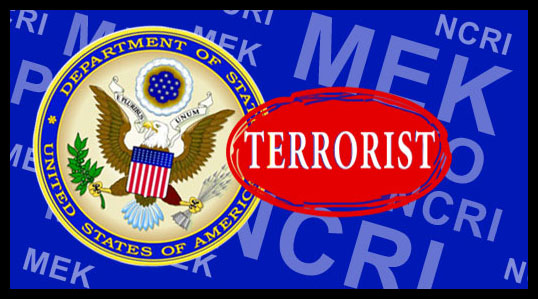| Once the base is completely emptied, a decision on MEK's status could be made within 60 days, the U.S. government has said. |
 An Iranian dissident group on the U.S. government's list of terrorist organizations is showing signs of cooperation, but the United States has not decided whether to remove it from the list, a Department of Justice attorney told a federal appeals court panel Tuesday.
An Iranian dissident group on the U.S. government's list of terrorist organizations is showing signs of cooperation, but the United States has not decided whether to remove it from the list, a Department of Justice attorney told a federal appeals court panel Tuesday.
An attorney for Mujahedin-e Khalq urged a three-judge panel on the U.S. Court of Appeals for the District of Columbia to issue a writ of mandamus, essentially an order compelling the State Department to comply with a lower court's previous order, and to make a decision on delistment in a timely manner.
MEK is seeking the enforcement of a 2010 ruling by a U.S. District Court ordering the State Department to review the group's status on the Foreign Terrorist Organization list. In its ruling, the District Court gave the State Department 180 days to review the request from MEK to be removed from the terror list.
Robert Loeb, who argued the case on behalf of the administration, said the lack of total unfettered access to the MEK's base inside Iraq demands more deliberation and time be given to the decision. Loeb argued questions still remain whether "hard core" elements of the group harbor weapons inside the base and thus retain the "capacity" to launch attacks.
Once the base is completely emptied, a decision on MEK's status could be made within 60 days, the U.S. government has said. In court, Loeb stipulated that 60-day period could be subject to extension based on anything learned within that period.
The group has been on the terror list since 1997 because of the deaths of Americans during the 1970s. The group was granted refuge in Iraq by Saddam Hussein during the Iran-Iraq war.
The Obama administration has argued it needs to assess the MEK's move from its previous base of operations at Camp Ashraf in Iraq to a processing center at a former U.S. base in Iraq before making its decision. The move is being conducted under U.N. auspices after the Iraqi government ordered the camp closed at the end of 2011.
Mark Toner, deputy State Department spokesman, released a statement this past weekend praising the "continued cooperation" of Camp Ashraf residents. Over half of the approximately 3,000 residents of Camp Ashraf have been relocated to Camp Hurriya, Toner said, with the goal of eventually settling in countries outside Iraq.
Secretary of State Hillary Clinton told a Senate panel last year that the way the transfer was carried out would influence the eventual decision on removing the group from the terror list.
Loeb said the administration understands the "duty" to make a timely decision on MEK's status, but said the administration also has a duty to the public to "get it right."
The group is also known as the People's Mujahedeen Organization of Iran.
Viet Dinh, a former Justice Department lawyer representing the MEK, said the group no longer poses a military threat because the U.S. Army peacefully disarmed the group after the 2003 invasion of Iraq. The U.S. government treated MEK members as protected people under international law until the U.S. turned over responsibility to the Iraqi government.
Dinh told the court the State Department's delay in making a decision is a violation of MEK's due process rights, and liberties granted under the U.S. Constitution.
"The secretary has recognized (MEK's) renunciation of violence and is legally bound to delist the organization," Dinh wrote in a filing in February." She cannot pocket veto (MEK's) application for revocation of its terrorist status."
The MEK enjoys the support of prominent high-ranking officials from past Democratic and Republican administrations who speak out against the group's continued presence on the terror list.
